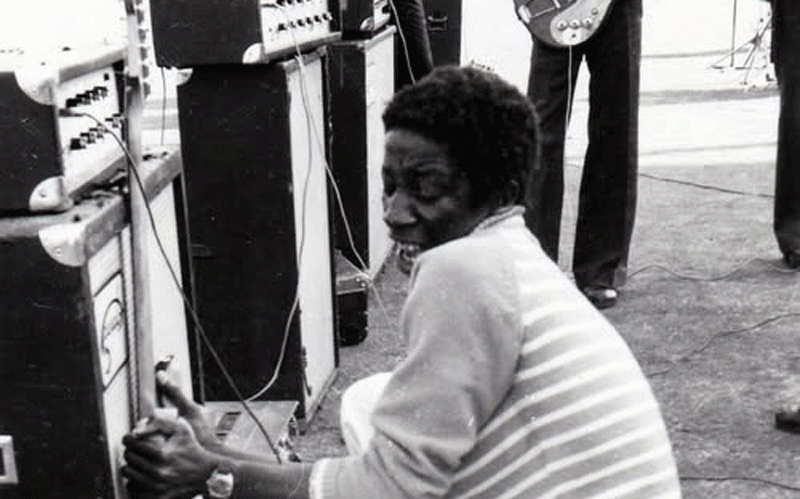
I couldn’t help laughing when I read Trevor Walters, a Jamaican singer, being interviewed on having stolen Lionel Richie’s Penny Lover and Stuck On You, original songs and releasing them without permission.
He questioned the interviewer: “What is original about that? The words or the instrumentation? All of dem words are found in the dictionary. Unless you are telling me that Lionel Richie also wrote the English dictionary. The instruments have been modified to reggae so there is nothing left to be called original,” he said.
There are many things to consider when we speak about originality or copyright in a song.
That brings me to the question of whether when we are talking about copyright, is it the lyrics we look at or is it the instrumentation? We also need to be clear about what we mean about originality. When a song is translated from one language to another, is still in its original form or has its originality been violated?
To me, originality means that it's not a copy or cover of an existing piece, but rather a new, unique piece of art which nobody else has created or done before.
How many musicians can confess that “their” pieces of work are not from sounds they have not heard before? I would call theirs original if they have registered them with a recognised copyright body and nobody else has done the same. This is one mistake the Pied Pipers made when South Africa’s Steve Kekana and Babsy Mlangeni copied Gideon Neganje’s Reggae Sounds of Africa and African Woman.
If you’re a musician, there are a few key things to know about copyright law and the protections available.
First, you should know that copyright protection exists from the moment an original work is “fixed” in a tangible medium. For example, fixation occurs when a song is recorded in an audio file or when a musical work is notated in sheet music or a digital file. You don’t need to do anything else for your work to be protected by copyright. However if you are playing that song live before it is recorded and another band likes it and decides to copy it, there is dispute about the originality of the song because it is not fixed in a tangible form.
- Gweru offers land to JSC
- Muckraker: Of the ‘prostate’ currency and ZiG
- The copyright mix-up
Keep Reading
When you record a song, you may be creating two works that are protected by copyright: a musical work and a sound recording. A sound recording and the music, lyrics, words, or other content included in the recording are separate copyright-protected works. These works are subject to different rules and are commonly owned and licensed separately. In many Jamaican studios, they have pre-recorded rhythms (riddims), which a variety of musicians will come and sing over them using different lyrics before releasing then under different names. Do we call that music original?
In the distant past before the subject of copyright was brought to the fore, Zimbabwean groups such as Dr Footswitch, Eye of Liberty, Sweet Charity, Groovy Union, The Four Sounds, Electric Mud, and the Whitstones, to mention only a few, played nothing, but copyright music from their Western counterparts. These groups performed songs from Western groups such as The Who, Led Zeppelin, Uriah Heep, Pink Floyd, Deep Purple, Grand Funk and Wishbone Ash.
Music festivals were held mainly in Harare’s Gwanzura Stadium dubbed The Rock Band Contest where guitarist Manu Kambani from Mbare outshone everyone through his unique guitar solos and stage acts He copied his guitar styles from Black American star, James Marshall, aka "Jimi" Hendrix (born Johnny Allen Hendrix in Seattle, Washington on November 27, 1942 and died on September 18, 1970) who was an American musician, singer, and songwriter.
Jimi Hendrix began to play the guitar at age 15 in 1961. Although his mainstream career spanned only four years, he is widely regarded as one of the most influential electric guitarists in the history of popular music, and one of the most celebrated musicians of the 20th century. He favoured overdriven amplifiers with high volume and gain, and was instrumental in popularising the previously undesirable sounds caused by guitar amplifier feedback. He was also one of the first guitarists to make extensive use of tone-altering effects units in mainstream rock, such as fuzz distortion, phaser, octavia, wah-wah and uni-vibe.
Back then before independence there was a newspaper headline in the Rhodesia Herald with the words: “Jimi Hendrix is dead but Manu is alive “. This was one of the rare occasions when a black face appeared at the front of a white-owned national newspaper. There was an uproar from the conservative whites who criticised the editor of the then Rhodesia Herald of lowering white standards by showing this picture at the front of a white newspaper.
Legendary Mbare lead guitarist and Rock musician Manu Kambani, a musical genius was often likened to Jimi Hendrix He copied everything Jimi Hendrix did from instruments to vocals as evidenced by the way he did Hey Joe with such ease in the same manner that Hendrix performed it. The only difference was that he was using locally manufactured Scarab amplifiers. Manu captivated audiences with his electrifying performances alongside bands like Dr Footswitch, Sound Effects, The Springfields, and The Great Sounds.
His timeless hits — Shumaira, Keep on Trying, and Baby—defined an era of bell-bottoms, high-heel “Linda” shoes, and unforgettable Teen Beat and Teen Time live shows. Born on December 25, 1949, Manu’s passion for the guitar was ignited at the tender age of nine, inspired by his grandfather, a renowned solo guitarist in Mazowe.
From his early days with the Whitstones to performing with icons like Thomas Mapfumo and the Springfields, Manu’s career was a testament to raw talent and boundless dedication. His journey took him across borders, backing the legendary Dorothy Masuka and even sharing the stage with Jimi Hendrix.
Anyone from the 1990s will remember Manu Kambani’s highly attended and publicized funeral which was televised on ZTV in 1996.
In the case of Manu Kambani, it was obvious to everyone that he copied his guitar styles from the late Jimi Hendrix.
To be honest, it is not only Zimbabwean groups who copied music from the west. Other African musicians also copied from within Africa and mainly from the west depending on what their audiences liked. It is well known that some of the Beatles’s songs came from Black America. So is there such a thing called original music? Is it just in the lyrics that music is copied or is it in the instrumentation?
Most Zairean groups that came to Zimbabwe in the 1960s and 1970s changed the lyrics of their songs to Shona to suit Zimbabwean audiences. Groups such as Baba Gaston Band, O.K. Jazz, The OK Success, The Limpopo Jazz Band and John Bokela used traditional rhumba music from Zaire and translated these into Shona but using basically the same instrumentation. Local groups found it easier to copy such popular sounds and devised what was known as museve using Shona lyrics in songs such as The Great Sounds’ Anopenga Anewaya or Devera Ngwena’s Solo naMutsai. They even recorded these tunes, which they took and translated from Lingala into Shona, but were not necessarily their own compositions.
Why is music called a universal language? There is no place in this world which does not use music on different occasions.
Music uses rhythm, melody, and harmony to evoke emotions, stir memories, and create shared experiences that transcend cultural, linguistic, and social boundaries. This is why music is often called the true universal language — one that taps into our common humanity and unites us through shared rhythms and feelings.
Once again, let the music play.
Feedback: frezindi@gmail.com











